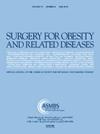青少年代谢和减肥手术后体重恢复的评估和医疗管理:叙述性回顾。
IF 3.5
3区 医学
Q1 SURGERY
引用次数: 0
摘要
青少年代谢和减肥手术(MBS)对大多数严重肥胖和相关并发症的持久治疗。然而,体重的大幅反弹会破坏长期的健康益处。对于儿科或成人MBS后体重恢复的医疗管理,尚无循证标准。这篇叙述性综述总结了目前有关mbs后体重恢复的评估和医疗管理的儿科证据,确定了差距,并提出了建议。PubMed检索进行到2024年3月,重点关注袖式胃切除术或Roux-en-Y胃旁路术后的青少年。研究领域包括营养、活动、心理健康、抗肥胖药物、2型糖尿病、下丘脑肥胖和护理过渡。共筛选了600篇文献,其中61篇纳入本综述。最近对成人mbs后体重恢复的共识定义已经建立,但尚未在儿科得到验证。在营养领域发现了有限的、高质量的证据,其中可能减轻体重反弹的目标包括充足的蛋白质摄入(≥60 g/d)、饮食不失控和微量营养素充足。mbs后抗肥胖药物治疗有/无糖尿病成人和持续性肥胖青少年的新数据是有希望的。很大的差距包括以身体活动和心理健康为重点的mbs后干预措施。评估和医学管理mbs后体重恢复的儿科特异性证据的总体质量较低。对体重恢复与儿科健康结果相关的标准定义将是有价值的。明确体重恢复的危险因素和保护因素可以指导更精确的风险分层和治疗。本文章由计算机程序翻译,如有差异,请以英文原文为准。
Assessment and medical management of weight regain after adolescent metabolic and bariatric surgery: a narrative review
Metabolic and bariatric surgery (MBS) in adolescents results in durable treatment of severe obesity and related complications for most. However, substantial weight regain can undermine long-term health benefits. There is no evidence-based standard of care for the medical management of weight regain after MBS in pediatrics or adults. This narrative review summarizes current pediatric evidence pertaining to the assessment and medical management of post-MBS weight regain, identifies gaps, and offers recommendations. A PubMed search was conducted through March 2024 and focused on adolescents after sleeve gastrectomy or Roux-en-Y gastric bypass. Domains included nutrition, activity, mental health, antiobesity medications, type 2 diabetes, hypothalamic obesity, and transition of care. In total, 600 articles were screened and 61 were included in this review. Recent consensus definitions for post-MBS weight regain have been established for adults but have not been validated in pediatrics. Limited, high-quality evidence was identified in the nutrition domain, where targets that may mitigate weight regain include adequate protein intake (≥60 g/d), absence of loss-of-control eating, and micronutrient sufficiency. Emerging data for post-MBS antiobesity medications in adults with/without diabetes and in adolescents with persistent obesity are promising. Large gaps include post-MBS interventions focused on physical activity and mental health. The overall quality of pediatric-specific evidence for the assessment and medical management of post-MBS weight regain is low. A standard definition of weight regain associated with health outcomes in pediatrics would be valuable. Clarifying risk and protective factors for weight regain can guide more precise risk stratification and treatment.
求助全文
通过发布文献求助,成功后即可免费获取论文全文。
去求助
来源期刊
CiteScore
6.70
自引率
12.90%
发文量
570
审稿时长
56 days
期刊介绍:
Surgery for Obesity and Related Diseases (SOARD), The Official Journal of the American Society for Metabolic and Bariatric Surgery (ASMBS) and the Brazilian Society for Bariatric Surgery, is an international journal devoted to the publication of peer-reviewed manuscripts of the highest quality with objective data regarding techniques for the treatment of severe obesity. Articles document the effects of surgically induced weight loss on obesity physiological, psychiatric and social co-morbidities.

 求助内容:
求助内容: 应助结果提醒方式:
应助结果提醒方式:


